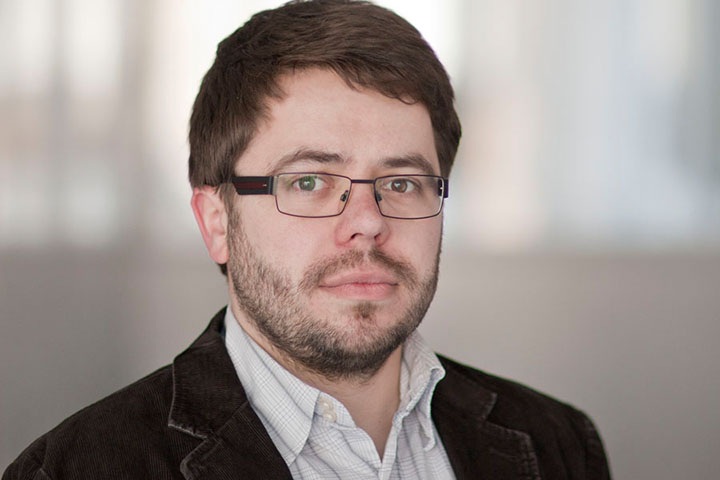Click here for the interview with partnership spokesperson Prof. Jens Weber...

Info: The following interview is taken from www.futuresax.de.
In addition to his work as Professor of Physical Chemistry at Zittau/Görlitz University of Applied Sciences, Prof. Dr. Weber is also coordinator of the LaNDER³ project. LaNDER³ stands for: Lusatian natural fibre composites, decentralized energy, raw materials, resources, recycling. The idea behind it: Using natural fibres from regional plants, chemically optimizing them and combining them with plastics. The aim is to produce new fiber composites that are both low-density and cost-effective to manufacture. We spoke to Dr. Jens Weber about this work and the importance of Zittau/Görlitz University of Applied Sciences as a driver of innovation for Upper Lusatia.
"As a university, we are involved in a wide range of collaborations with local and national companies."
futureSAX: Prof. Weber, you have held the Chair of Physical Chemistry at Zittau/Görlitz University of Applied Sciences (HSZG) since 2014. Please briefly describe the topics that you and the chemistry department at the HSZG focus on.
As a physical chemist, I focus on applied polymer chemistry as well as the use of highly porous materials to separate mixtures of substances. Current projects range from work in the context of natural fiber-reinforced polymers and water treatment to the investigation and modification of plastic surfaces, e.g. silicones. Overall, as chemists at the Zittau/Görlitz University of Applied Sciences, we are committed to applied research - each with our own areas of focus and in cooperation with SMEs.
futureSAX: The HSZG is a regional driver of innovation in Upper Lusatia. In your opinion, what significance does knowledge and technology transfer have for the economic development of the region?
A decisive one! As a university, we are involved in a wide range of collaborations with local and national companies. Knowledge and technology transfer takes place at various levels - from student work in practical semesters to contract research. These two examples clearly illustrate important impulses for economic development: local companies can retain skilled workers for further development at an early stage, and companies with good ideas but no R&D department or experience in R&D can work with us to develop the idea into, ideally, a product. At this point, perhaps a look into the future - the joint efforts for economic development will be further strengthened in the near future through new activities, e.g. through the emerging Lausitz Life & Technology alliance.
"...we [...] provide impetus that generates added value with and for SMEs in Saxony and Upper Lusatia."
futureSAX: Prof. Weber, you are coordinating the project "Lusatian Natural Fibre Composites: Decentralized Energy, Raw Materials, Resources and Recycling(LaNDER³)". What is behind this project and how can SMEs in Saxony benefit from it?
LaNDER3 is a strategic partnership between the HSZG and a whole range of other partners, primarily companies from the region, funded by the BMBF as part of the FH-IMPULS program. The scientific goal is to promote the sustainable and economical use of renewable raw materials. This takes place in a series of projects, not only at the HSZG but also directly in some of the participating SMEs. The research activities focus on natural fiber-reinforced plastics (NFRP) and their entire product life cycle.
The projects, which build on each other thematically, address the development of efficient technologies and processes for the production, refinement, use and recycling of NFRP as well as the generation of energy from biological residues during fiber production and recycling.
The partnership is currently about halfway through the set-up phase, which will last until 2021, and will continue to develop dynamically. We are also developing satellite projects, networking partners with each other, offering a "shared factory" with the shared laboratory hall that is about to be opened - in short, providing impetus that generates added value with and for SMEs in Saxony and Upper Lusatia. Feel free to contact us - we are not a closed club!
"Sustainability is on everyone's lips and also affects materials research..."
futureSAX: At the futureSAX Innovation Conference 2019, you and Fraunhofer IKTS will be presenting research results and opportunities for cooperation on the topic of "Materials for a sustainable world" in the "Ready to Transfer" section. What can interested companies and scientists expect?
Sustainability is on everyone's lips and also affects materials research; we in Zittau are working on NFRP, among other things. The bioeconomy, for example, is already visible on the horizon as a major concept that is directly related to this. What opportunities does it have to change the existing material and energy flows? Are disruptive technologies on the horizon? What challenges and opportunities are emerging?
These questions and other topics can be discussed with us during the mini-workshop in order to provide impetus and bring companies closer to our scientific work.
futureSAX: Prof. Weber, what motivated you to become part of the futureSAX know-how network and how important are cross-industry platforms for knowledge and technology transfer?
I have always been curious about the world - futureSAX is a place where new, sometimes at first glance "weird" ideas come together - an ideal place for me to receive new impulses and also to feed them back. In this sense, I think the interdisciplinary networks are extremely important, also to find the partners that are needed to realize exciting projects.
futureSAX: Prof. Weber, thank you very much for the interview.